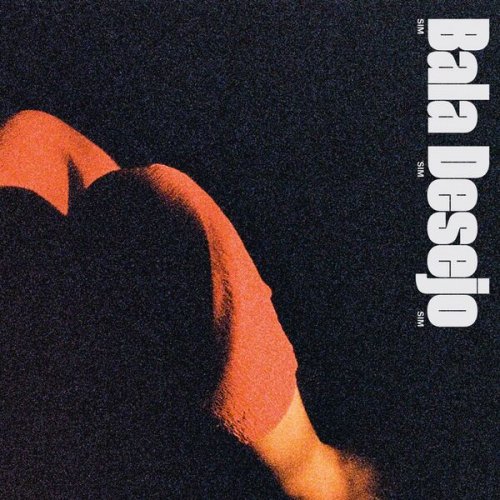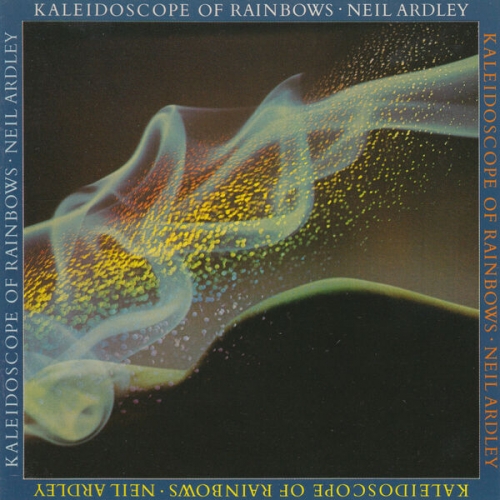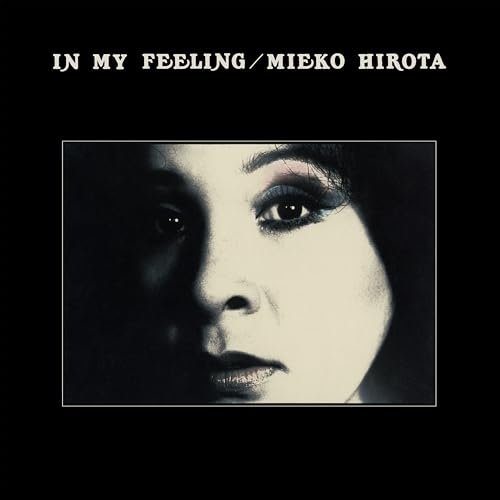Bala Desejo - Sim Sim Sim (2022) Hi-Res

Artist: Bala Desejo
Title: Sim Sim Sim
Year Of Release: 2022
Label: Mr Bongo
Genre: MPB, Pop, Samba, Fusion, Brazil
Quality: 320 / FLAC (tracks) / FLAC (tracks) 24bit-44.1kHz
Total Time: 54:52
Total Size: 128 / 338 / 616 Mb
WebSite: Album Preview
Tracklist: Title: Sim Sim Sim
Year Of Release: 2022
Label: Mr Bongo
Genre: MPB, Pop, Samba, Fusion, Brazil
Quality: 320 / FLAC (tracks) / FLAC (tracks) 24bit-44.1kHz
Total Time: 54:52
Total Size: 128 / 338 / 616 Mb
WebSite: Album Preview
01. Embala Pra Viagem (1:27)
02. Baile De Máscaras (Recarnaval) (5:03)
03. Lua Comanche (3:35)
04. Clama Floresta (5:49)
05. Dourado Dourado (5:41)
06. Nesse Sofá (5:17)
07. Nana Del Caballo Grande (1:55)
08. Chupeta (1:47)
09. Lambe Lambe (5:12)
10. Passarinha (3:55)
11. Sim Sim Sim (0:35)
12. Muito Só (5:27)
13. Cronofagia (O Peixe) (2:56)
14. Faixa Técnica (6:13)
Dora Morelenbaum, Julia Mestre, Lucas Nunes, and Zé Ibarra emerged from the confinement of Rio with diverse experiences and creative processes and decided that this variety should be reflected in their songs. Bala Desejo is like a juice with many ingredients, with a nostalgic and joyful aura, typical Brazilian sounds, and a lot of charisma, and perfect for listening to on a sunny Sunday morning.
Bala Desejo’s Latin Grammy-winning debut, Sim Sim Sim, is released on this side of the Atlantic. We should be thankful. This is a joyous fiesta of an album that manages to sound like seventies MPB and modern-day fusion at the same time. Shimmying like prime Ronaldinho, Louder Than War’s Gordon Rutherford reviews.
Picture the scene. You are standing on the corner of a bustling Rio de Janeiro street. It’s a holiday and the bustling throng who blur in their movement before you are in a carnival mood. A traveller who is keen to make the most of the visit, you soak up everything going on around you; the sights, the smells, but, above all else, the sounds. Laughter intermingles with the chatter of excited voices. Then, in the distance, you hear what everyone is waiting for. The band. It is faint at first, but as they draw closer, you can hear the unmistakable sound of the pounding of bass drums and the exultant fanfare of trumpets.
That’s how Sim Sim Sim, the debut album from Bala Desejo, introduces itself, and in doing so, it transports you; lifting and laying you down on that very street corner, slap bang in the eye of the fiesta. And for the next fifty-five minutes, it takes you by the hand and guides you on a quite fantastic voyage.
Sim Sim Sim, Portuguese for Yes Yes Yes, isn’t a new album, nor is it an old one, although it sounds like both simultaneously. Its influences lie unmistakably in the golden age of Brazilian music; sixties tropicália fused with seventies MPB (musica populeira Brasileira) and samba. On first listen you will swear it originates from that period by virtue of the fact that it oozes the vivid psychedelic hues of that period.
And yet…and yet. The more you listen, the more contemporary it sounds. There are washes of soul woven through the Latin rhythms. Accomplished bursts of funk are present, as are distillations of reggae. With all of that fusion going on, it is evident that Bala Desejo are unquestionably a band for the moment, with a sound that arrives as freshly as a just-landed red snapper. I did say, however, that Sim Sim Sim isn’t a new record and, technically speaking, it isn’t. Not quite. The album was first released last year in Brazil and, unsurprisingly, went on to triumph in the Latin Grammy Awards for the best Portuguese Language Contemporary Pop Album. That’s quite the achievement for a debut album from a newly formed band.
The fact that we are now able to enjoy these euphoric sounds is down to the consistently brilliant Mr Bongo label. The moment they first heard Bala Desejo, they were “blown away”, and determined to bring Sim Sim Sim across the Atlantic to Europe. The journey that the music takes the listener on is matched by the trajectory of the band’s evolution. The quartet – Dora Morelenbaum, Julia Mestre, Lucas Nunes and Zé Ibarra – only came together two years ago, ostensibly to play collaboratively for a festival gig. Covid had other ideas. Undeterred, the newly-formed Bala Desejo decided to put the time to good use and the outcome is Sim Sim Sim.
I have made much about the carnival vibe that dominates Sim Sim Sim. Nowhere is this more evident than on Baile de Máscaras, which is aptly subtitled Recarnival, or on the vivacious samba of Passarinha. Similarly, the second half of Dourado Dourado is impossible to listen to without getting off your ass. What I love most about this particular tune, however, is the transition. Dourado Dourado starts out as a stripped-back ballad, allowing us to fully appreciate the voices of Morelenbaum and Mestre. Thus far, I have focused on the musical feel of Bala Desejo, but, throughout this collection, Morelenbaum and Mestre utterly sparkle, not only on Dourado Dourado, but also, particularly, on the lush pop of Lua Comanche and the languid grooves of Clama Floresta. On both, those heavenly vocal performances are augmented by outstanding horns.
Whilst it’s not easy (nor entirely necessary) to choose, the finest vocal performance comes on the beautiful ballad, Nesse Sofá. Indeed, this particular tune is Sim Sim Sim’s stand-out track. This time, the primary accompaniment comes not from the horn section, but the sublimely picked guitar. Nesse Sofá is perhaps the first time on Sim Sim Sim that the guitars have the space to flourish. Like the original Ronaldo, they don’t miss chances like this. We don’t have to wait long for a reprise. The following track, Nana del Caballo Grande, may be short, but it is also the match of Nesse Sofá, again crafted by those exquisite guitar filigrees.
Based on that, you could make a case for stating that Bala Desejo are actually at their best when they step off the throttle a tad. Further evidence comes in the shape of the Bacharach-esque sorrowful soul ballad, Muito Só. However, what makes Sim Sim Sim so great is the band’s ability to mix it up; to introduce slight deviations. They aren’t afraid to introduce different influences to the mix, or to strip things back, and that’s precisely why this album sounds so fresh. Of course, they don’t get it right all the time. You can’t fault Lambe for exuberance, but this is a song that wouldn’t be out of place at Eurovision and I’m not a fan of that particular kitsch-fest.
No matter. There’s enough brilliance going on to make Sim Sim Sim an incredibly worthwhile listen. It possesses several of the qualities of classic Brazilian music of the seventies, whilst bringing a modern feel. The vocal performances are as melodic as you will hear anywhere and the musical performances are nothing short of outstanding. Above all else, however, is the sheer quality of the songwriting. It is quite exemplary. In conclusion, is it an album worth investing in? Sim, sim and, categorically, sim.
Bala Desejo’s Latin Grammy-winning debut, Sim Sim Sim, is released on this side of the Atlantic. We should be thankful. This is a joyous fiesta of an album that manages to sound like seventies MPB and modern-day fusion at the same time. Shimmying like prime Ronaldinho, Louder Than War’s Gordon Rutherford reviews.
Picture the scene. You are standing on the corner of a bustling Rio de Janeiro street. It’s a holiday and the bustling throng who blur in their movement before you are in a carnival mood. A traveller who is keen to make the most of the visit, you soak up everything going on around you; the sights, the smells, but, above all else, the sounds. Laughter intermingles with the chatter of excited voices. Then, in the distance, you hear what everyone is waiting for. The band. It is faint at first, but as they draw closer, you can hear the unmistakable sound of the pounding of bass drums and the exultant fanfare of trumpets.
That’s how Sim Sim Sim, the debut album from Bala Desejo, introduces itself, and in doing so, it transports you; lifting and laying you down on that very street corner, slap bang in the eye of the fiesta. And for the next fifty-five minutes, it takes you by the hand and guides you on a quite fantastic voyage.
Sim Sim Sim, Portuguese for Yes Yes Yes, isn’t a new album, nor is it an old one, although it sounds like both simultaneously. Its influences lie unmistakably in the golden age of Brazilian music; sixties tropicália fused with seventies MPB (musica populeira Brasileira) and samba. On first listen you will swear it originates from that period by virtue of the fact that it oozes the vivid psychedelic hues of that period.
And yet…and yet. The more you listen, the more contemporary it sounds. There are washes of soul woven through the Latin rhythms. Accomplished bursts of funk are present, as are distillations of reggae. With all of that fusion going on, it is evident that Bala Desejo are unquestionably a band for the moment, with a sound that arrives as freshly as a just-landed red snapper. I did say, however, that Sim Sim Sim isn’t a new record and, technically speaking, it isn’t. Not quite. The album was first released last year in Brazil and, unsurprisingly, went on to triumph in the Latin Grammy Awards for the best Portuguese Language Contemporary Pop Album. That’s quite the achievement for a debut album from a newly formed band.
The fact that we are now able to enjoy these euphoric sounds is down to the consistently brilliant Mr Bongo label. The moment they first heard Bala Desejo, they were “blown away”, and determined to bring Sim Sim Sim across the Atlantic to Europe. The journey that the music takes the listener on is matched by the trajectory of the band’s evolution. The quartet – Dora Morelenbaum, Julia Mestre, Lucas Nunes and Zé Ibarra – only came together two years ago, ostensibly to play collaboratively for a festival gig. Covid had other ideas. Undeterred, the newly-formed Bala Desejo decided to put the time to good use and the outcome is Sim Sim Sim.
I have made much about the carnival vibe that dominates Sim Sim Sim. Nowhere is this more evident than on Baile de Máscaras, which is aptly subtitled Recarnival, or on the vivacious samba of Passarinha. Similarly, the second half of Dourado Dourado is impossible to listen to without getting off your ass. What I love most about this particular tune, however, is the transition. Dourado Dourado starts out as a stripped-back ballad, allowing us to fully appreciate the voices of Morelenbaum and Mestre. Thus far, I have focused on the musical feel of Bala Desejo, but, throughout this collection, Morelenbaum and Mestre utterly sparkle, not only on Dourado Dourado, but also, particularly, on the lush pop of Lua Comanche and the languid grooves of Clama Floresta. On both, those heavenly vocal performances are augmented by outstanding horns.
Whilst it’s not easy (nor entirely necessary) to choose, the finest vocal performance comes on the beautiful ballad, Nesse Sofá. Indeed, this particular tune is Sim Sim Sim’s stand-out track. This time, the primary accompaniment comes not from the horn section, but the sublimely picked guitar. Nesse Sofá is perhaps the first time on Sim Sim Sim that the guitars have the space to flourish. Like the original Ronaldo, they don’t miss chances like this. We don’t have to wait long for a reprise. The following track, Nana del Caballo Grande, may be short, but it is also the match of Nesse Sofá, again crafted by those exquisite guitar filigrees.
Based on that, you could make a case for stating that Bala Desejo are actually at their best when they step off the throttle a tad. Further evidence comes in the shape of the Bacharach-esque sorrowful soul ballad, Muito Só. However, what makes Sim Sim Sim so great is the band’s ability to mix it up; to introduce slight deviations. They aren’t afraid to introduce different influences to the mix, or to strip things back, and that’s precisely why this album sounds so fresh. Of course, they don’t get it right all the time. You can’t fault Lambe for exuberance, but this is a song that wouldn’t be out of place at Eurovision and I’m not a fan of that particular kitsch-fest.
No matter. There’s enough brilliance going on to make Sim Sim Sim an incredibly worthwhile listen. It possesses several of the qualities of classic Brazilian music of the seventies, whilst bringing a modern feel. The vocal performances are as melodic as you will hear anywhere and the musical performances are nothing short of outstanding. Above all else, however, is the sheer quality of the songwriting. It is quite exemplary. In conclusion, is it an album worth investing in? Sim, sim and, categorically, sim.



![Jamhunters - Smoothest Hits (20 smooth years) (2026) [Hi-Res] Jamhunters - Smoothest Hits (20 smooth years) (2026) [Hi-Res]](https://www.dibpic.com/uploads/posts/2026-02/1770353356_vo4tf6d4yjji2_600.jpg)

![Malene Mortensen & Christian Sands - Malene & Christian (2026) [Hi-Res] Malene Mortensen & Christian Sands - Malene & Christian (2026) [Hi-Res]](https://www.dibpic.com/uploads/posts/2026-02/1770214038_ye95svxsd11r2_600.jpg)

![Stefan Vale - Duo (Remastered 2026) [Hi-Res] Stefan Vale - Duo (Remastered 2026) [Hi-Res]](https://www.dibpic.com/uploads/posts/2026-02/1770223721_cover.jpg)
